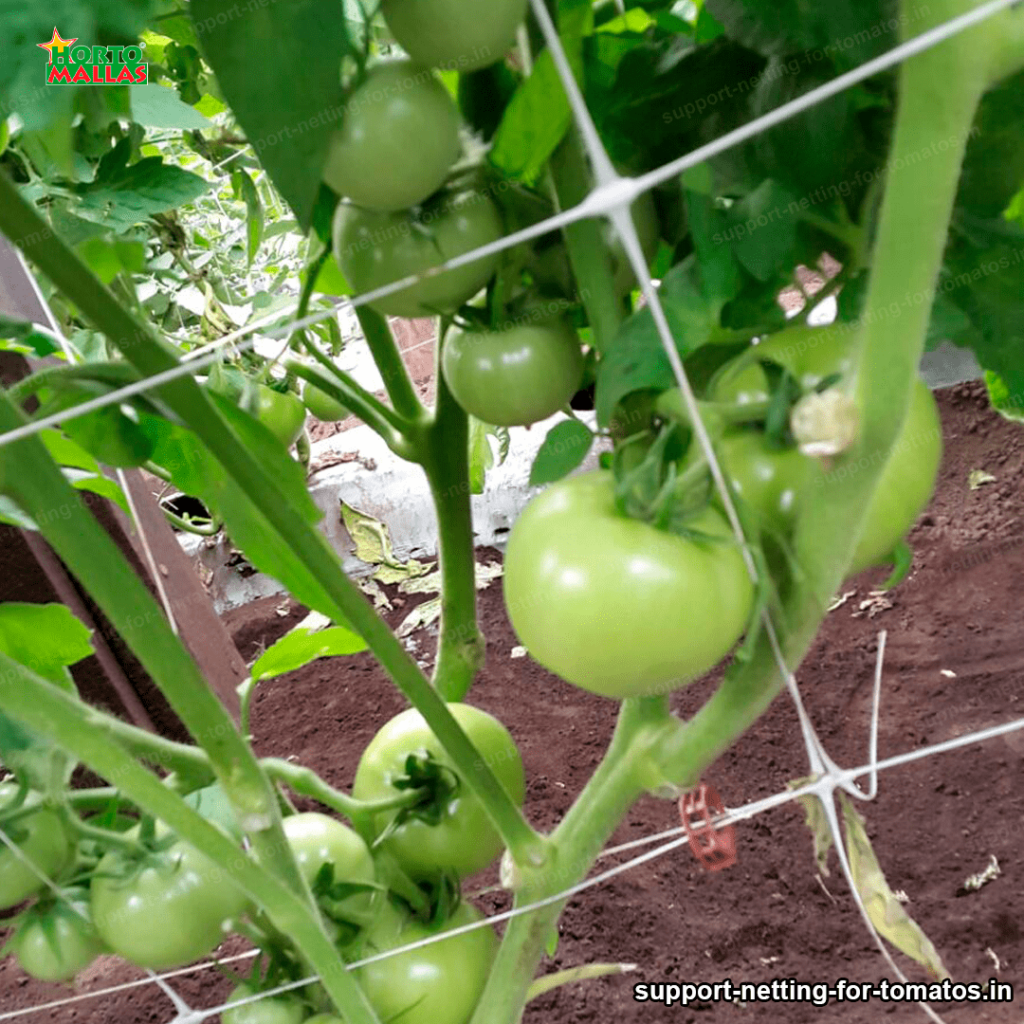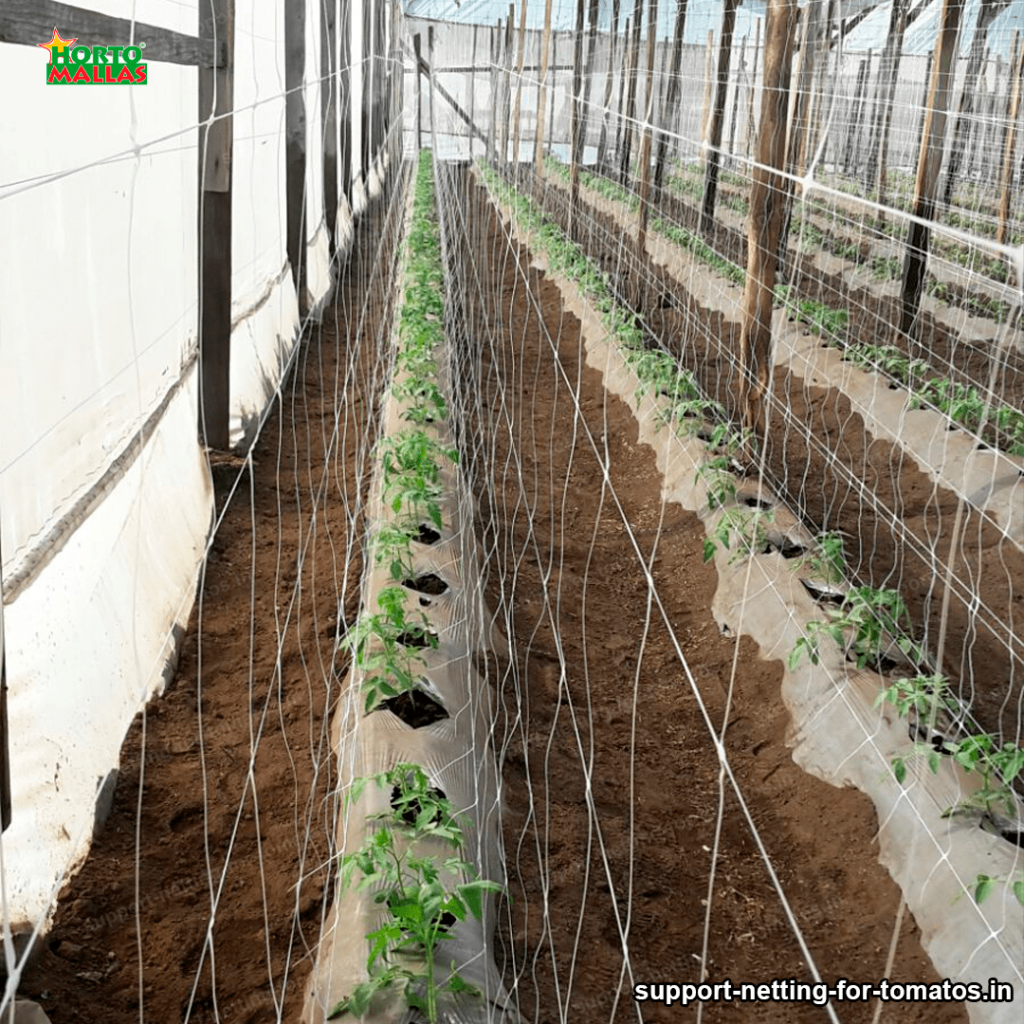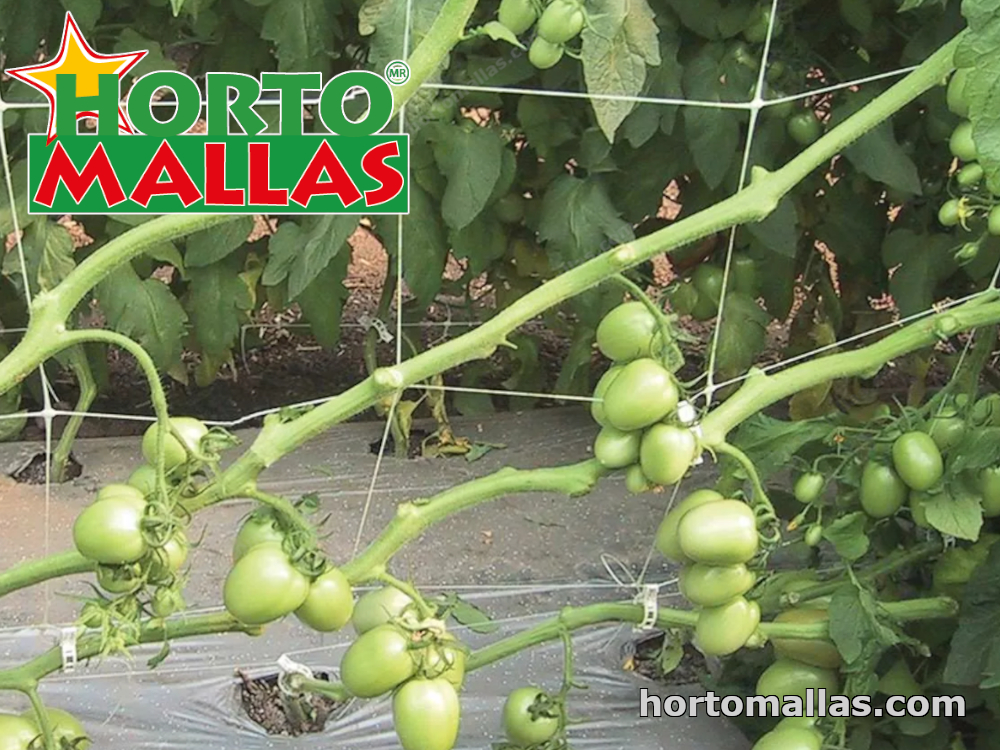Tomato netting is an essential product for growers engaged in the production of fruits and vegetables.
With the use of tomato netting, farmers can improve the quality of their food without wasting time and money. One of the main advantages of tomato netting is its ability to improve crop efficiency. A great deal of time, effort and money are invested in food production. The use of tomato netting helps to minimize the cost of food production, ensuring fruits and vegetables of the highest quality. This is because the netting provides excellent support for the stems, allowing crops to grow straight and properly shaped, resulting in larger, more vigorous fruit. The netting also gives plants protection from herbivorous insects, such as butterflies, worms and others, ensuring that crops are less likely to be damaged by pests.

This is a useful and effective way to provide structural support to plant stems, ensuring better production and preventing damage from weeds, insects or other external agents.
In addition, tomato netting is an efficient way to reduce the amount of avocados in crops by limiting access by chickens, coyotes and other animals that feed on the fruits of the plants. This mesh also gives the opportunity to improve the soil structure in the orchards, allowing it to better resist extreme weather conditions, such as drought, such as heavy rain, frost and intense heat.
Moreover, with the use of tomato netting, growers can improve the health status of plant stems, allowing sunlight to penetrate deeply. This increases the levels of photosynthesis in the plants, resulting in increased plant efficiency. This mesh also helps to increase the amount of nutrients in soils, further enhancing crop growth.
The use of tomato netting is a safe and efficient way to improve food production. Farmers can get better yields from their crops with the benefits of tomato netting, such as increased production efficiency, protection against herbivorous insects, increased soil quality.
And increased levels of photosynthesis. This helps growers ensure greater profitability without wasting time and money.
Most important objectives of the use of tomato netting for trellising
Tomato netting is a material commonly used in order to provide adequate support for tomato stems, allowing them to grow vertically in a safe and stable manner. This netting provides adequate stability to prevent the tomato stem from bending under the weight of the fruit, enabling better fruit production. It is made of a very strong material in order to ensure that it continues to support the load during the longest months of the growing cycle. One of the main objectives of using this netting is to provide adequate support for better harvesting and improved appearance of the tomatoes.
On the other hand, another important objective of using this netting is to protect the tomato stems from other factors such as diseases, pests, fungal damage etc.
Tomato netting is a physical barrier that prevents contact between the stems and these damaging agents. This barrier better protects tomatoes from these diseases and pests, leading to increased production of higher quality fruit.

In addition to the objectives mentioned above.
This type of netting is also very useful for temperature regulation and irrigation control within the plot. Tomato netting is particularly useful in reducing the risk of waterborne diseases such as manganese rust.
We can consider that it also allows better aeration and air circulation between the stems. This is fundamental for the healthy development of the plant, as it allows a better distribution of light, air, soil and nutrients. This decreases the risk of diseases that depend on excess humidity, such as bacteria, spider mites, spider mites, etc.
The most important objectives of using this tomato netting are adequate protection for the tomato stems, allowing them to grow in a safe and stable manner.
Temperature regulation and irrigation control within the plot by maintaining an adequate level of humidity; and circulation and aeration between the stems, which is essential for the healthy development of the plant. Tomato netting is necessary to obtain the best fruit with good fruit production.
Results obtained by the proper use of tomato netting for trellising.
This netting is a strong polypropylene netting that is easy to install and offers many benefits for plant care and growth. When used correctly, tomato netting can help refine, protect and help the plant grow healthier, more productive and resistant to disease, pests and weather. Proper use of tomato netting involves assembling the nylon netting around a support structure, such as a pole, rebound or wall, to gain access to the plant. This structure provides the tomatoes with the support needed to grow and keep the fruit off the ground. As soon as the wind hits the tomato netting, it would provide a secure support for the tomato.
This results in better disease control because the netting screens the air, which in turn allows aerated branches and shoots to cool faster after rainfall. On the other hand.
This protection prevents strong wind from damaging the tomato plant.
In addition to better disease control.
The proper use of tomato netting adds more stimulation and support to the plant for trellising. This also decreases the need to use metals to make a stake. Instead.
Growers only need to knot the mesh to the support structure for the plant to grow optimally. The use of tomato netting is also a good way to increase production. Plants protected by the netting receive better nutrition and sunlight, which helps them reach full maturity faster. This results in better fruit quality, healthier food and an increased tomato crop.
The proper use of netting for trellising offers many benefits with which growers will get better results from their crops. This technique provides better growing conditions for the plant, reducing costs, time and pests. In addition, nylon netting allows better nutrition and sunlight to promote full ripening, quality and high fruit set.

